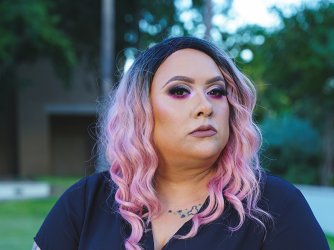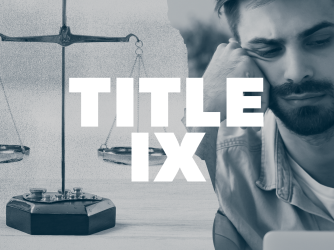Table of Contents
Southwestern College Accreditation in Jeopardy; ‘Culture of Fear and Intimidation’ on Campus
Earlier this academic year, Southwestern College (SWC) in California banned three professors from campus and put them on administrative leave because they joined with students who took a campus protest outside of SWC's unconstitutional free speech area—a mere patio (see map)—to a more visible and audible location. Free speech zones such as this one are plainly unconstitutional and have been soundly defeated in court time after time. The professors were reinstated just two days after FIRE intervened in the case. Nevertheless, this case is not over so long as the "free speech patio" remains in place and SWC violates the First Amendment by keeping this policy on the books. Meanwhile, SWC has even bigger problems on its hands, being on probation from its accreditors because of ongoing reports of a "culture of fear and intimidation" on campus.
In a Progress Report in June 2004, SWC agreed to focus on several concerns identified during the accreditation renewal process, including "supporting an environment of trust and respect for employees." More than five years later, SWC reportedly has failed to establish such an environment. According to the confidential "Evaluation Report" (PDF) prepared by SWC's accreditation team in October 2009, "tension between the Superintendent/President [Raj Chopra] and members of the college community has distracted the institution from ongoing improvement efforts for several years."
The accreditation team from the Western Association of Schools and Colleges consisted of 10 administrators from other community and junior colleges, including Lawrence Bradford, Vice President of Student Services at Los Angeles City College (LACC). Bradford's role here is interesting, since LACC is facing accreditation problems of its own—so severely, he told the Los Angeles Times, that LACC hardly has time to deal with the First Amendment concerns brought up by FIRE and the Student Press Law Center last month regarding LACC's treatment of the school's student newspaper.
As for SWC, the accreditation team recommended 10 areas for improvement, including two items that deal with lack of trust and fear of retaliation among faculty and staff.
Recommendation 8 reads, in relevant part:
The team recommends that the college set as a priority fostering an environment of trust and respect for all employees and students that allows the college community to promote administrative stability and to work together for the good of the college. (p. 6)
The problem appears to go back quite a long way but is at a particularly bad point right now. Recommendation 2 states:
In 1996 and 2003, the college was given similar recommendations regarding issues of trust and creating an environment of mutual respect. Faculty, staff, and students reported to the visiting team [in 2009] that they operate in a "culture of fear and intimidation" and "lack of trust." ... Employees stated that they were fearful for their jobs and that an atmosphere of distrust permeated the college. This negative climate was attributed to the Superintendent/President's action to terminate some staff members following a vote of no confidence by both the faculty and classified unions. ... The long-standing nature of the recommendation, dating back over ten years, suggests that the negative climate is not the doing of the Superintendent/President [who was hired in 2007], but the current administration has not succeeded in addressing the recommendation. (pp. 8-9)
In addition, under the "Human Resources" standard, the team notes:
A significant finding, based upon numerous interviews, is that there is no evidence the faculty and staff feel the college subscribes to, advocates, or demonstrates integrity in the treatment of its administration, faculty, and staff. (p. 28)
Finally, under "Decision-making Roles and Processes," the team states:
Through conversations with all employee groups, it has been reported that the oppressive climate on campus has not improved in ensuing years [since 2003]. Several faculty members commented to the team that they feared reprisal for their words and actions. Examples of this allegation were supplied by faculty via conversations and at the well-attended forums held during the visit [October 5-8, 2009]. Several faculty members cited an environment in which nontenured faculty, middle-level managers, and classified staff feared for their jobs if they spoke freely about an issue that they perceived to be a problem or if they complained about particular issues. ... The perception by some administrators is that eleven or twelve individuals are causing the strife between the college and the administration. ... The obvious adversarial climate that exists on campus is destructive and disruptive to student learning. (pp. 33-34)
It looks like Southwestern College has a long way to go. One of the first things that Superintendent/President Chopra should do is immediately and publicly suspend enforcement of SWC's unconstitutional policies, especially the "free speech patio" policy. Every day that this policy remains in force is a further violation of the First Amendment rights of the members of the SWC community. A public announcement of this action would go a long way toward restoring trust on campus.
If Chopra refuses to do this, it is incumbent upon the Board, consistent with its duty to establish policy, to immediately withdraw SWC's unconstitutional policies and thus avoid further embarrassment and potentially expensive First Amendment lawsuits. Every day counts.
Recent Articles
FIRE’s award-winning Newsdesk covers the free speech news you need to stay informed.


FIRE statement on campus violence and arrests

BREAKING: New Title IX regulations undermine campus free speech and due process rights
